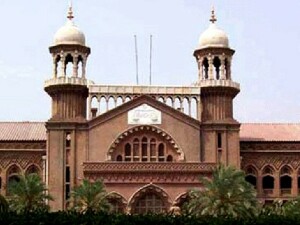Major powers haggled on Friday over a fourth round of UN sanctions against Iran to curb its nuclear program, but ended with no firm commitments amid Russian and Chinese resistance to more punitive measures.
State Department spokesman Robert Wood said the meeting of senior officials from the permanent five members of the UN Security Council - Britain, France, the United States, Russia and China - and Germany concluded without agreement on either the timing or content of a new UN resolution on Iran.
But he said all six expressed a commitment to the so-called two-track approach - using both carrots and sticks to get Iran to give up its sensitive nuclear work. "They remain committed to exploring possible further measures on the second track," Wood said, referring to sanctions under consideration by the six.
He said the six countries again urged Iran to accept an offer of trade and other incentives presented in June in exchange for giving up uranium enrichment. Tehran has not accepted the offer and has said it will not give up sensitive nuclear work.
Iran says its nuclear program is intended to generate more power for the Islamic republic and not to build an atomic bomb as charged by the West. A European diplomat said after the talks that all sides agreed on the principle of more sanctions but there was no consensus on the substance and timing of those measures.
"The Russians are obviously not fully ready to move forward right now and the Chinese are not far from Russian thinking," said the diplomat, who spoke on condition of anonymity. Even before the meeting began, State Department spokesman Sean McCormack played down expectations, urging Russia to shelve differences over Georgia, which Russia invaded last month, and work together on Iran.
"We would urge them to put aside, as we have, any issues that exist between the United States/the rest of the world on Georgia and work on areas where we can work together - Iran," said McCormack. Highlighting divisions, China and Russia were excluded from a morning meeting at the State Department to discuss both Georgia and Iran, but were brought in for a lunch where the discussion was solely on Iran's nuclear program.
"The Russians have always been very reluctant and usually every resolution of sanctions is an ordeal - three or four months of negotiations, comma by comma. I guess it will be more or less the same," said a senior European official.
"This resolution, if and when we get it, will be very weak," he added. Earlier this week, the United Nations' International Atomic Energy Agency said in a report that Iranian stonewalling had brought to a standstill its investigation into whether Iran had covertly researched ways to make an atom bomb. US President George W. Bush's national security adviser, Stephen Hadley, said it was "not reassuring" that Iran was not co-operating with the IAEA, adding that such a move only increased suspicions in the international community about its nuclear activities.
"Since they have not made that strategic choice and seem to be even less co-operative, I think you'll find a call over the weeks ahead for greater pressure on Iran," Hadley said. Iran has withstood three rounds of limited UN sanctions imposed so far. Iranian President Mahmoud Ahmadinejad reiterated on Thursday Tehran would not suspend its enrichment program and brushed aside the threat of more sanctions.
With four months left in office, the Bush administration's leverage is slipping on the Iran dossier, experts say, and Tehran, Moscow and Beijing are taking this into account. McCormack rejected the view that time was running out and that only a weak UN resolution, if any, could emerge. "We are looking for the most robust Security Council resolution we can get," he said.
While US officials stress their focus on diplomacy to resolve differences with Tehran, the nuclear dispute and hostile rhetoric have fuelled speculation in the global financial markets this year of a possible military confrontation between Iran and the United States or Israel.
Foreign ministers from the major power are set to discuss Iran, the world's fourth largest oil producer, on the sidelines of the UN General Assembly in New York next week but McCormack said he did not anticipate any decision would be taken on sanctions then either.
BR100
12,000
Increased By
69.2 (0.58%)
BR30
35,548
Decreased By
-112 (-0.31%)
KSE100
114,256
Increased By
1049.3 (0.93%)
KSE30
35,870
Increased By
304.3 (0.86%)



















Comments
Comments are closed.